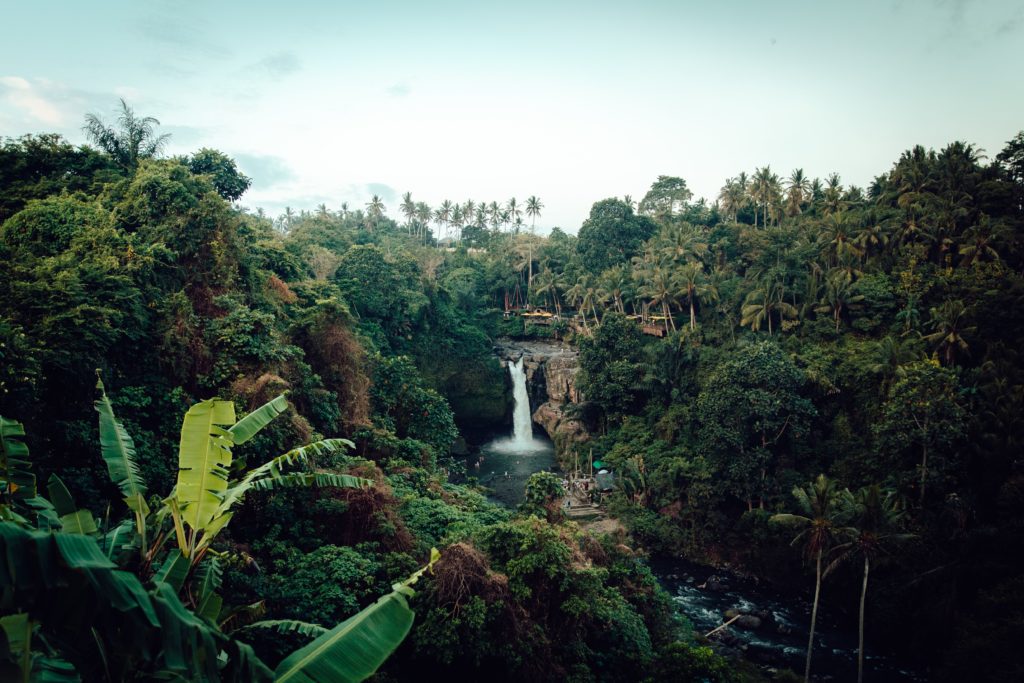 The Amazon is the largest rainforest in the world. It spans approximately 2.2 million square miles, and as such, it is also one of the largest carbon sinks on our planet. A carbon sink is an area where carbon gets either trapped or processed into oxygen, rather than being released into our atmosphere. The Amazon rainforest cycles through either wet or dry years. During wet years there is more rainfall, and there is also more carbon absorption. This is largely in part due to there being more plants thriving in the wet years.
The Amazon is the largest rainforest in the world. It spans approximately 2.2 million square miles, and as such, it is also one of the largest carbon sinks on our planet. A carbon sink is an area where carbon gets either trapped or processed into oxygen, rather than being released into our atmosphere. The Amazon rainforest cycles through either wet or dry years. During wet years there is more rainfall, and there is also more carbon absorption. This is largely in part due to there being more plants thriving in the wet years.
Parts of Amazon have become carbon emitters
A ten-year study from 2010 to 2020 led by Luciana Gatti, a researcher at Brazil’s National Institute for Space Research (INPE), is exploring the effects of deforestation on the Amazon’s carbon levels. Although the study has not yet been released, Professor Gatti appeared on BBC’s Newsnight. In recent years, the rainforest has suffered unprecedented damages. Hundreds, if not thousands, of fires rage through the Amazon basin every year. Farmers cut down trees to clear land for livestock grazing. Carlos Nobre, a professor that co-authored the study, states that the Amazon, as of today, has been cleared of 17% of all vegetation.
According to the study, about one-fifth of the Amazon rainforest has become a source of carbon rather than a sink. That’s right, the largest forest in the world is now releasing carbon dioxide into our atmosphere. Professor Gatti explains that deforestation is the main culprit behind this phenomenon. As the dead trees decompose, they release carbon. This means that not only is deforestation preventing the absorption of the high amounts of carbon we as humans release on the day-to-day, but it’s also creating even more carbon.
What the future holds
As Professor Gatti told BBC, “each year is worse.” In fact, it has gotten so bad that over the ten-year span, there is no longer any difference in carbon absorption between wet and dry years because of the absorption rate’s decline. Professor Nobre believes that within the next 30 years, more than half of the Amazon rainforest will become a savanna. He explains that back in the 80s and 90s, the Amazon would extract almost two billion tons of carbon dioxide from the atmosphere. Today, the Amazon barely goes through 1.2 billion tons. The U.S. alone emits 5.1 billion tons of carbon each year.
Professor Nobre warns, “In our calculations, if we exceed that 20-25% of deforestation and global warming continues unabated with high emission scenarios, then the tipping point would be reached.” The tipping point is when a forest loses its ability to regrow and starts to emit carbon. This purpose of this study was to test Professor Nobre’s theory about Amazon’s imminent tipping point. Judging by the current discussions, it seems that data supports the grim theory.
What we can do
Brazilian President Jair Bolsonaro believes that his country’s development is more important than the preservation of the Amazon. 80% of deforestation in the Amazon is brought about by cattle ranching. If more people move towards, or switch to, a plant-based diet, the demand for beef will fall—and with it, the incentive to clear the rainforest. The mainstream media that deplore the loss of the Amazon often neglect to mention the causal relationship between meat consumption and this irreplaceable rainforest. But the power to save the rainforest and save the planet is directly in people’s hands.
Also by Iga: Climate Change Is Causing Violence & Sexual Abuse Against Women
Starbucks Unveils Its Sustainability Pledge—But It Has A History Of Reneging On Its Promises
Get more like this–sign up for our newsletter for exclusive inspirational content!
___
Photo: Nate Johnston on Unsplash
